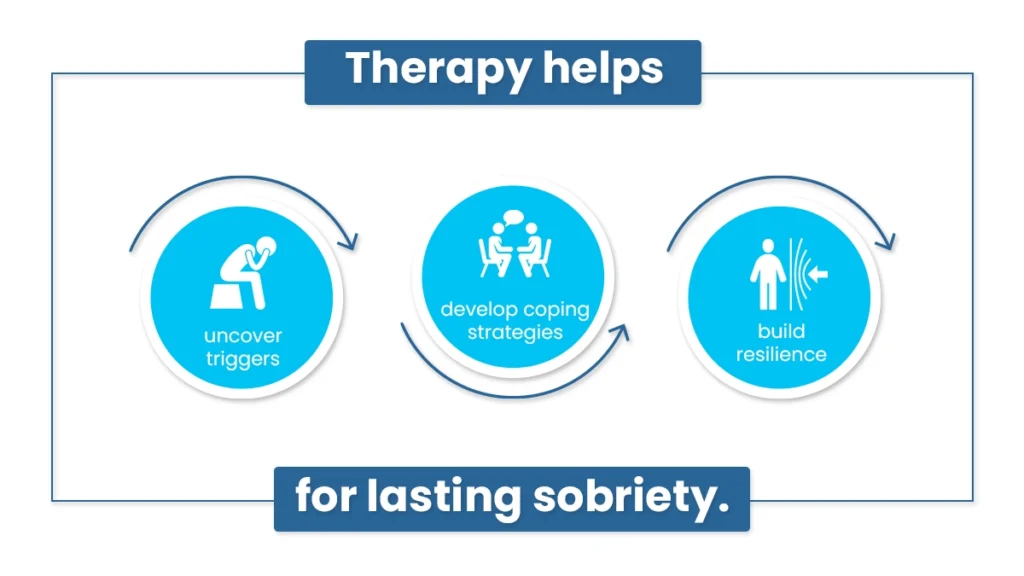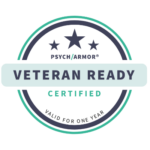Inpatient rehabilitation is a form of alcoholism treatment where you live temporarily at a rehab facility. The 24/7 medical support and therapy in residential treatment tackle the underlying causes of alcoholism.
When previous outpatient attempts prove insufficient or when you require an immersive approach, opting for inpatient treatment is a strategic move toward effective recovery.

Key Takeaways
Inpatient alcoholism treatment might be necessary in some circumstances. When a drinking problem affects your life, you must take action to prevent further damage. Here’s what you need to know about inpatient treatment:
- Structured care, medical supervision, and comprehensive therapy are vital components of inpatient alcoholism treatment.
- Therapy helps uncover triggers, develop coping strategies, and build resilience for lasting sobriety.
- Before starting inpatient treatment, emotional readiness, packing essentials, and establishing a support network are necessary steps.
The Haven Detox-South Florida is an inpatient treatment center specializing in addiction recovery and relapse prevention. Call us at (561) 328-8627 for more information.
Alcoholism: Explained
Alcoholism is more than just excessive drinking; it’s a complex health condition. People with alcoholism struggle to control their alcohol intake, which harms their well-being. It often results from genetic, environmental, and psychological factors. Alcoholism can lead to various problems, affecting physical health, mental well-being, relationships, and work life.
Recognizing alcoholism involves noticing signs like increased tolerance, withdrawal symptoms, and neglecting responsibilities. Early intervention is vital.
Several treatment options exist, such as counseling, medication, and support groups. These treatments help individuals manage their alcohol use and improve their quality of life.
Inpatient Alcohol Treatment Explained
Inpatient alcohol treatment is a structured and intensive program for individuals with alcohol use issues. This option involves staying at a specialized facility throughout the treatment period.
Inpatient treatment goes beyond detox. It includes various therapies, group counseling sessions, and skill-building activities to address the underlying causes of alcohol abuse. It helps individuals develop coping strategies and tools for sustainable recovery.
These programs offer a supportive community of peers and professionals to enhance healing. The duration of inpatient treatment varies based on individual needs, typically ranging from a few weeks to a couple of months.
Advantages of Inpatient Alcoholism Treatment
Inpatient treatment for alcoholism offers a range of significant benefits, making it a valuable choice for those seeking recovery. Let’s explore the key advantages that this form of treatment brings:
Medical Supervision: In an inpatient setting, individuals receive 24/7 medical supervision. It ensures their safety, particularly during detox when withdrawal symptoms can be severe. Medical professionals monitor and manage these symptoms, making the process as comfortable and safe as possible.
Comprehensive Therapy: Inpatient programs provide a variety of therapies that address the physical, psychological, and emotional aspects of alcoholism. These therapies aim to uncover the underlying causes of alcohol misuse and equip individuals with coping mechanisms and life skills to sustain sobriety.
Peer Support: Being part of an inpatient community allows individuals to connect with peers working towards recovery. This peer support fosters a sense of belonging and reduces feelings of isolation.
Dedicated Focus: Inpatient treatment provides a concentrated period solely focused on recovery. Individuals can fully immerse themselves in the healing process with daily routines and therapeutic activities.
Professional Guidance: Experienced therapists and counselors guide individuals through their recovery journey. They offer personalized strategies, behavior modification techniques, and coping mechanisms to help navigate challenges and prevent relapse.
Holistic Approach: Inpatient programs often incorporate a holistic approach, addressing overall well-being. It includes physical health through proper nutrition and exercise and mental and emotional wellness through various therapeutic modalities.
Reduced Relapse Risk: The controlled inpatient treatment environment significantly reduces exposure to triggers and substances. It decreases the chances of relapse during the critical early stages of recovery.
Numerous reputable inpatient treatment centers provide these advantages. Always choose a program that aligns with your specific needs and preferences.
Stages of Inpatient Treatment for Alcoholism
Inpatient treatment for alcoholism typically consists of four key stages. These stages provide a structured approach to addressing alcohol use disorders.
They also support individuals on their path to recovery. Each stage plays a vital role in achieving sustained sobriety and improved well-being.
Assessment
Assessment is the first phase of inpatient treatment. Skilled professionals will evaluate your physical health, mental well-being, and alcohol use history. This assessment helps design a personalized treatment plan tailored to your unique needs and challenges. It’s a crucial step to ensure that your recovery journey begins on the right track.
Detoxification
Detoxification is the next step in inpatient treatment. During this phase, your body adjusts to the absence of alcohol.
Medical experts will closely monitor you to manage withdrawal symptoms and provide necessary medications if needed. They aim to make the detox process as safe and comfortable as possible. This stage sets the foundation for the rest of your treatment.
Rehabilitation
Rehabilitation forms the core of inpatient treatment. Through various therapies like individual counseling, group sessions, and behavioral interventions, you’ll explore the reasons behind your alcohol use and form healthy coping mechanisms. Therapists and peers provide essential support as you work through emotional challenges and learn to manage triggers effectively.
Aftercare
Aftercare is a pivotal stage as you transition out of the inpatient setting. A team of doctors will assist you in creating a plan for ongoing support. It might involve outpatient therapy, support groups, or continued counseling. This phase aims to sustain your progress, prevent relapse, and ensure a smooth reintegration into daily life.
In the United States, established inpatient treatment centers follow these stages to provide comprehensive care. It’s important to remember that everyone’s journey is unique, so the duration and focus of each step can vary. Inpatient treatment equips you with valuable tools and strategies to conquer alcoholism and health problems.
Role of Therapy in Inpatient Treatment
Therapy plays a crucial role in the inpatient treatment of alcoholism. It helps people learn the root causes of alcohol use and provides practical strategies for managing triggers and cravings.
Group and family therapy addresses these challenges, as alcoholism is often linked to mental health issues.
Therapists work closely with individuals to specify behavior and thought patterns contributing to alcohol misuse. They guide to enhance self-awareness and equip patients with practical tools for maintaining sobriety beyond the treatment period. Overall, therapy empowers individuals to navigate challenges, build resilience, and pave the way for a successful recovery journey.
Getting Ready for Inpatient Treatment
Treatment centers often guide what to bring and how to prepare emotionally. By taking these steps, you’ll set a positive tone for your inpatient treatment journey.
Emotional Preparation: It is important to prepare emotionally for your stay at an inpatient rehab facility. Understand that seeking help is a positive step. Reflect on your reasons for seeking therapy and set achievable goals. Embrace a mindset of growth and healing.
What to Bring: Pack essentials like comfortable clothing, personal hygiene items, and necessary documents. Limit valuables and focus on practical items. Check with the treatment center for any specific things to bring or avoid. Keep in mind that most centers have guidelines for what’s allowed.
Establishing a Support Network: Inform trusted friends, family, or mentors about your decision to enter treatment. Their support can be invaluable during this time. Arrange for someone to take care of home, work, or family responsibilities.
What to Look for in an Inpatient Treatment Center
You can choose an inpatient treatment center by considering these factors:
- Accreditation: Accreditation indicates adherence to quality standards in addiction treatment.
- Specialization: Look for a center with expertise in treating alcoholism. Specialized programs often yield better results.
- Treatment Approaches: Understand the center’s treatment methods. Effective programs typically incorporate therapies, counseling, and medical support.
- Medical Care: Check if the center has medical professionals on staff. It is crucial for safe detoxification and managing any co-occurring health issues.
- Location: Consider whether you prefer a facility close to home or a more distant one to minimize distractions.
- Duration: Evaluate the length of the program. Longer stays often lead to better outcomes.
- Aftercare: Inquire about their aftercare programs. Successful recovery involves ongoing support beyond inpatient treatment.
- Reviews and References: Read reviews and seek recommendations from trusted sources to gauge the success rate and the center’s reputation.
- Cost and Insurance: Understand the financial aspects, including what your insurance covers and any out-of-pocket expenses.
- Staff-to-Patient Ratio: A lower ratio can mean more personalized attention and care.
Alcohol abuse and drug addiction require diverse solutions. Outpatient treatment programs offer flexibility, while inpatient alcohol addiction treatment provides intensive care for lasting recovery.
Frequently Asked Questions (FAQ)
What is the most effective treatment for alcohol dependence?
The most effective treatment for alcohol dependence involves a combination of therapies, counseling, and support. Inpatient treatment programs provide a structured environment and medical supervision and have shown positive results.
However, the effectiveness varies depending on the individual’s needs and commitment to the treatment process. It’s essential to seek professional guidance to determine the best approach for your unique situation.
What are the two methods of treating alcoholism?
Two primary methods for treating alcoholism are inpatient treatment and outpatient treatment. Inpatient treatment involves residing at a specialized facility for intensive care, including medical supervision and therapy.
Outpatient treatment allows people to live at home while attending therapy sessions and support groups. The choice between the two depends on factors like the severity of alcoholism, personal circumstances, and treatment goals. Consulting with a healthcare expert can help determine the most suitable approach for long-term recovery.
How do you cope with alcoholism?
Coping with alcoholism involves seeking professional help through therapy, counseling, and support groups. Develop healthy habits, find positive outlets for stress, and build a solid support grid.
Making lifestyle changes, managing triggers, and staying engaged in treatment and recovery plans are vital strategies. It’s important to remember that alcoholism is treatable, and recovery is possible with the proper guidance and determination.
Seize the Day With The Haven Detox-South Florida
Ready to make a positive change? The Haven Detox-South Florida can help you overcome alcoholism.
We offer complete addiction treatment services, which include medical detox, counseling, and residential programs. You can also benefit from our science-backed SMART Recovery approaches.
Call us at (561) 328-8627 to learn more and prepare for admission.






